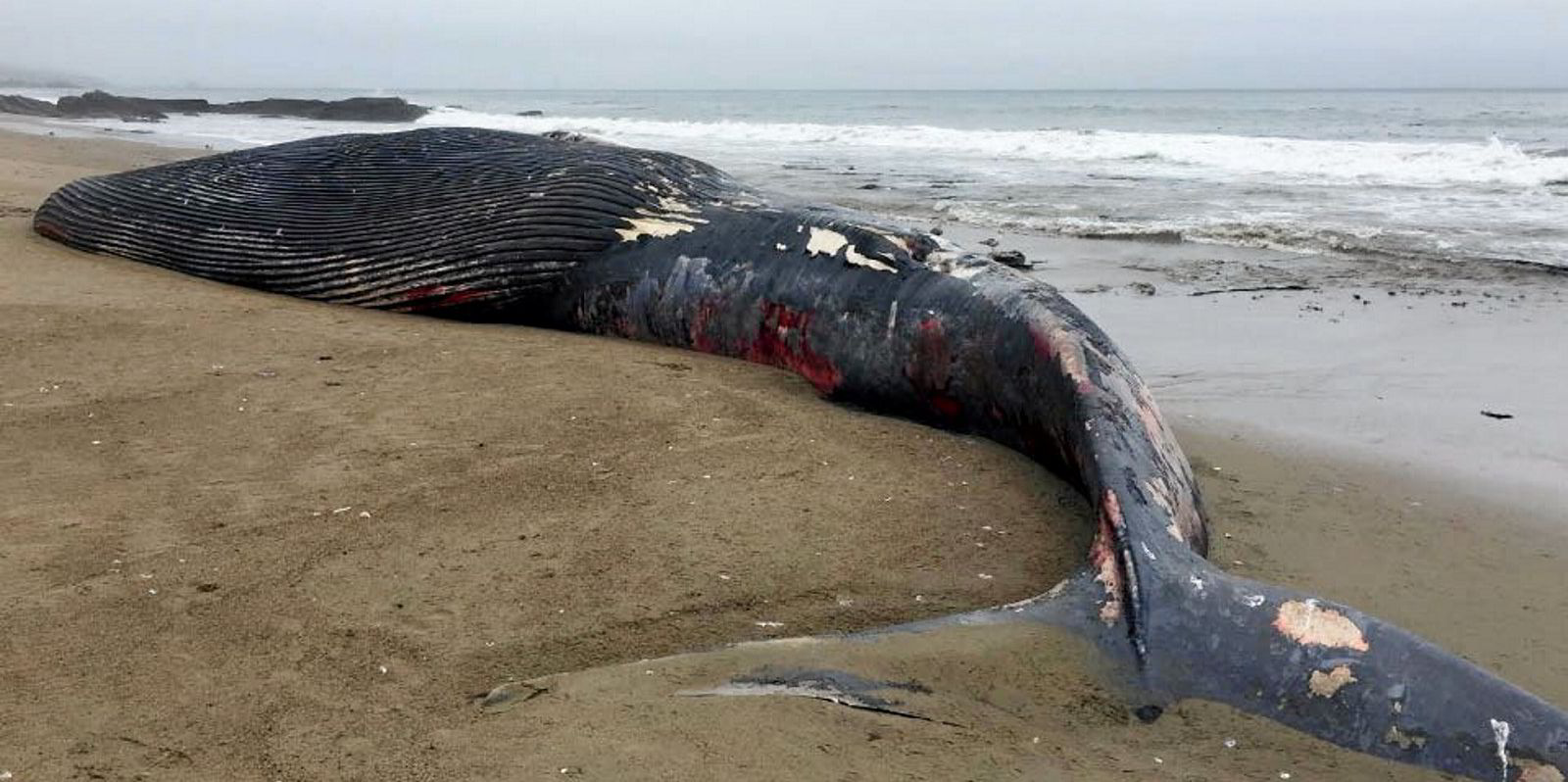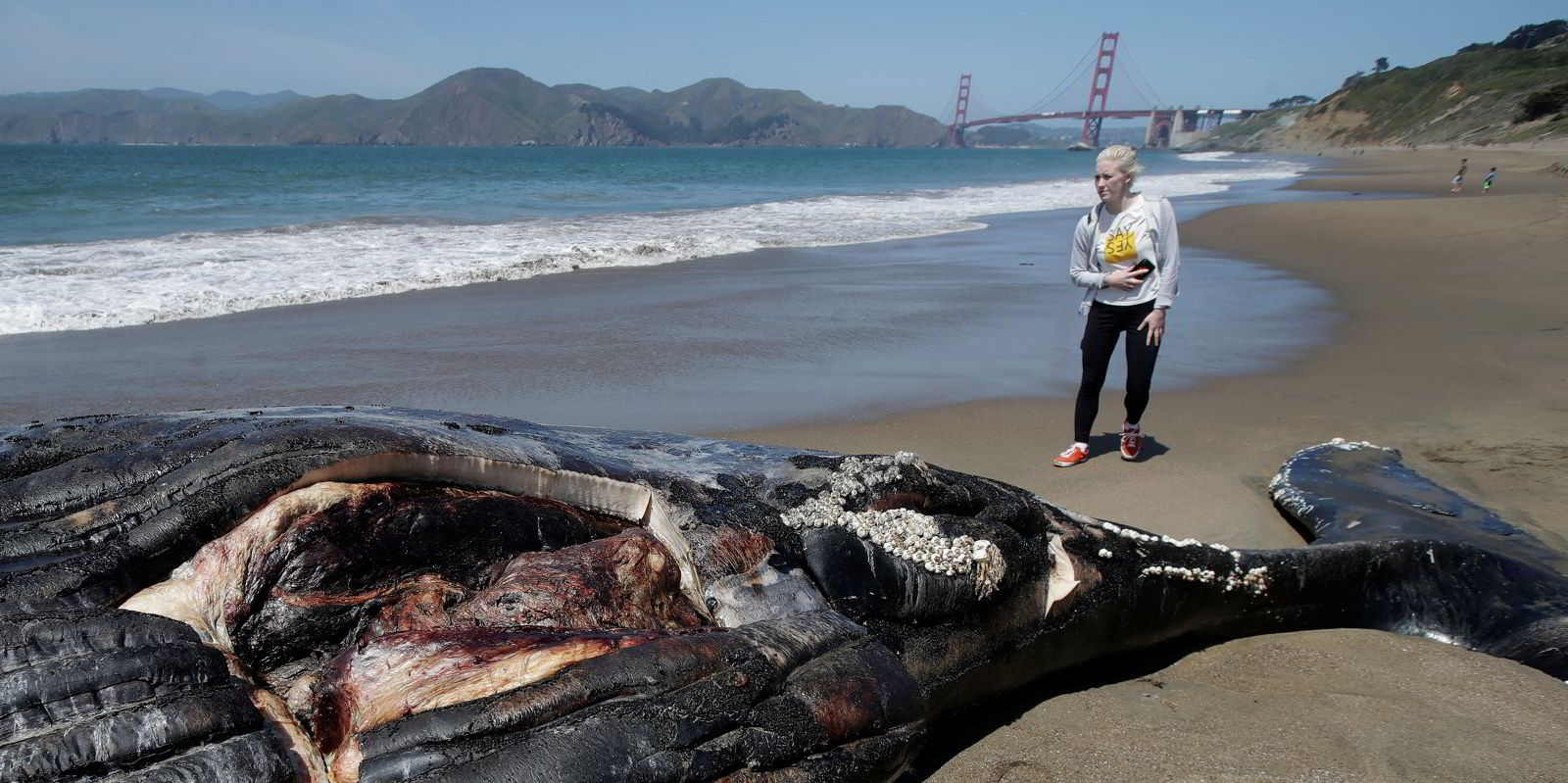A battle is brewing in an appeals court between the US government and environmental groups over the shipping lanes off California and their proximity to imperilled whales.
The US Department of Justice is pursuing a challenge in the US Court of Appeals for the Ninth Circuit after a federal judge in Oakland concluded that the National Marine Fisheries Service violated environmental law when it the assessed impact of the shipping lanes on endangered species.
The circuit court fight is the latest chapter in litigation launched by the Center for Biological Diversity and Friends of the Earth, two environmental NGOs that have been calling for mandatory ship speed limits and rerouting of traffic to protect blue, fin and humpback whales.
The battle is among swirling legal disputes over increasing protection of endangered whales that are at risk from collisions with vessels and entanglements in fishing gear.
Attorneys for the administration of US President Joe Biden have yet to file a brief detailing the reason for the appeal, and the Justice Department did not immediately respond to TradeWinds’ request for information on the appeal.
But US government lawyer Michelle Melton said in a mediation questionnaire filed with the Ninth Circuit that the main issues of the appeal could include whether the judge erred in concluding that the so-called biological opinion was unlawful.
Also, the US may argue that the two environmental groups did not have standing to file the case in the first place, according to the filing.
The court order in question was issued in December by US magistrate judge Kandis Westmore, who was weighing requests by both sides for a summary judgment — to make a final decision on the case without trial — in their favour.
Endangered Species Act
The judge concluded that a 2017 biological opinion by the US fisheries service runs afoul of the Endangered Species Act, which requires such documents for federal actions that might impact protected species.
That is because the document failed to contain an incidental take statement that would describe whale deaths that could be caused by the traffic separation schemes serving the ports of Los Angeles, Long Beach and San Francisco, and in the Santa Barbara Channel off Southern California.

Westmore rejected a claim by Justice Department lawyers that the statement was not required because the shipping lanes were certain to cause fewer deaths than a scenario with no traffic separation scheme.
“Such a determination defies logic,” the judge wrote.
She said that it is undisputed that endangered species are harmed by shipping lanes, and they have been in place for decades, so a “no traffic scheme” scenario is purely hypothetical.
“At the very least, the absence of an incidental take statement renders the biological opinion arbitrary, capricious, an abuse of discretion and not in accordance with law,” she said.

The environmental groups have argued that the traffic separation schemes off California, where speed limits are voluntary, route vessels through hot spots where whales congregate.
The NGOs said Westmore’s order requires the US Coast Guard to re-evaluate the shipping lanes’ impact on endangered species.
“The federal government has ignored the disastrous impacts of vessel traffic for far too long,” Friends of the Earth oceans and vessel programme director Marcie Keever said at the time. “The science is clear: better management of vessel speeds and routes will make a positive difference for marine ecosystems. It’s about time the court directed the Service to take action.”
_____________
Podcast: The power of battery swapping in drive for electric shipping
If you want to work all day with an electric drill, you may want not one battery but two. That will allow you switch out a depleted battery and replace it with a fully charged one to continue working.
The future of electric shipping may be no different, as technology firms pursue battery swapping for vessels.
That is the concept behind Shift Clean Energy’s PwrSwap system.
“What PwrSwap, effectively, is very similar to the concept of a power tool that you have at home, where you can swap energy storage in and out of the power tool to enable you to keep working whenever the batteries are finished,” Shift Clean chief executive Brent Perry told the Green Seas podcast.
“We’ve taken that idea and scaled it up into much bigger applications.”
Click here to listen, or subscribe to the podcast on Google Podcasts, Apple Podcasts, Stitcher, Pandora, Spotify or Soundcloud.
_____________
Can this Brazilian tug and barge company reach net zero by 2030?
At a time when most shipping companies that have net zero carbon targets are looking out decades from now, one Brazilian tug and barge outfit has a more ambitious goal.
Hidrovias do Brasil, a Sao Paulo-based company whose fleets operate on the coasts and river systems of South America, is striving for net zero greenhouse gas emissions by 2030, less than seven years away.
And this year, the company has marked two milestones toward achieving that goal — the introduction of what it calls super convoys and of two pioneering electric pusher tugs.
_____________
Beyond carbon: Shipping needs to update its language about greenhouse gas emissions
We should talk about laughing gas. This is no joke. We best know nitrous oxide, whose chemical formula is N2O, for its role in making dentist appointments less torturous.
But it is important for shipping because it is a greenhouse gas — despite having no carbon atom in its molecule — that can even be part of the emissions of the fuels we think of as the most climate-friendly of future fuels.
And I argue in TradeWinds’ Comment column that it is one of the reasons why it is time for “decarbonisation” to face scrutiny as a term to describe shipping’s efforts to reduce its contribution to climate change and to align itself with work to stop global warming at 1.5C above pre-industrial levels.



